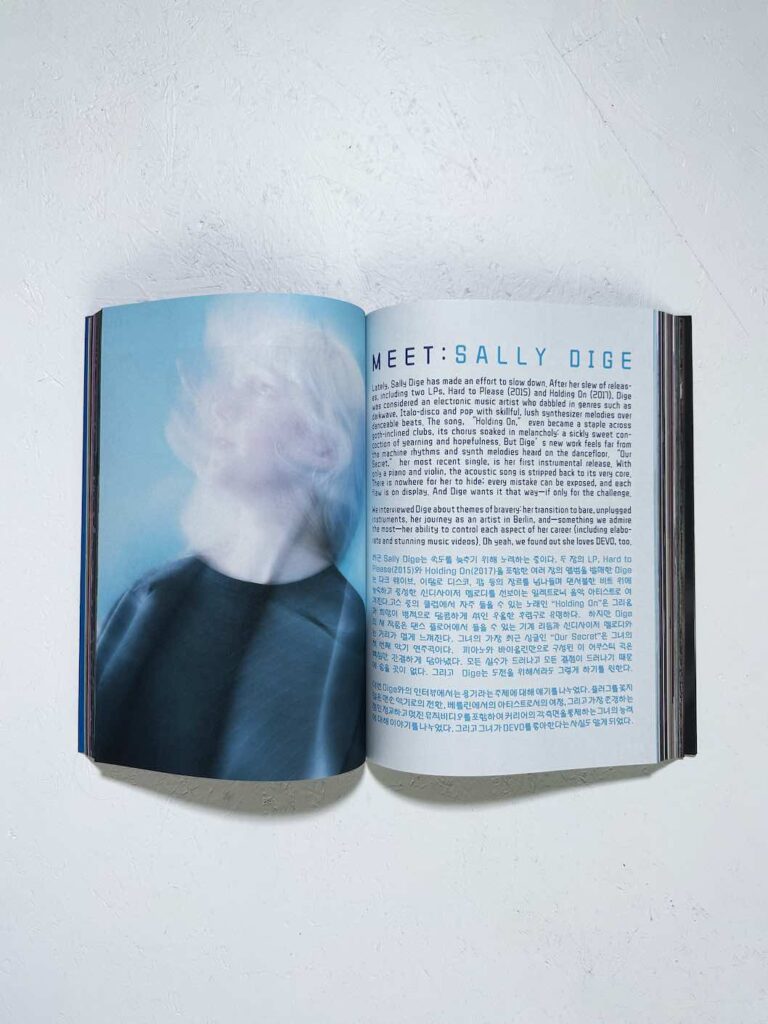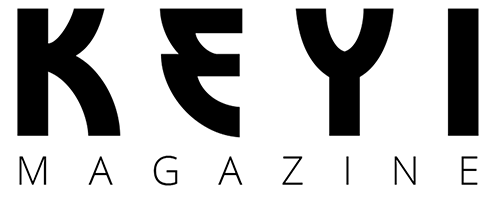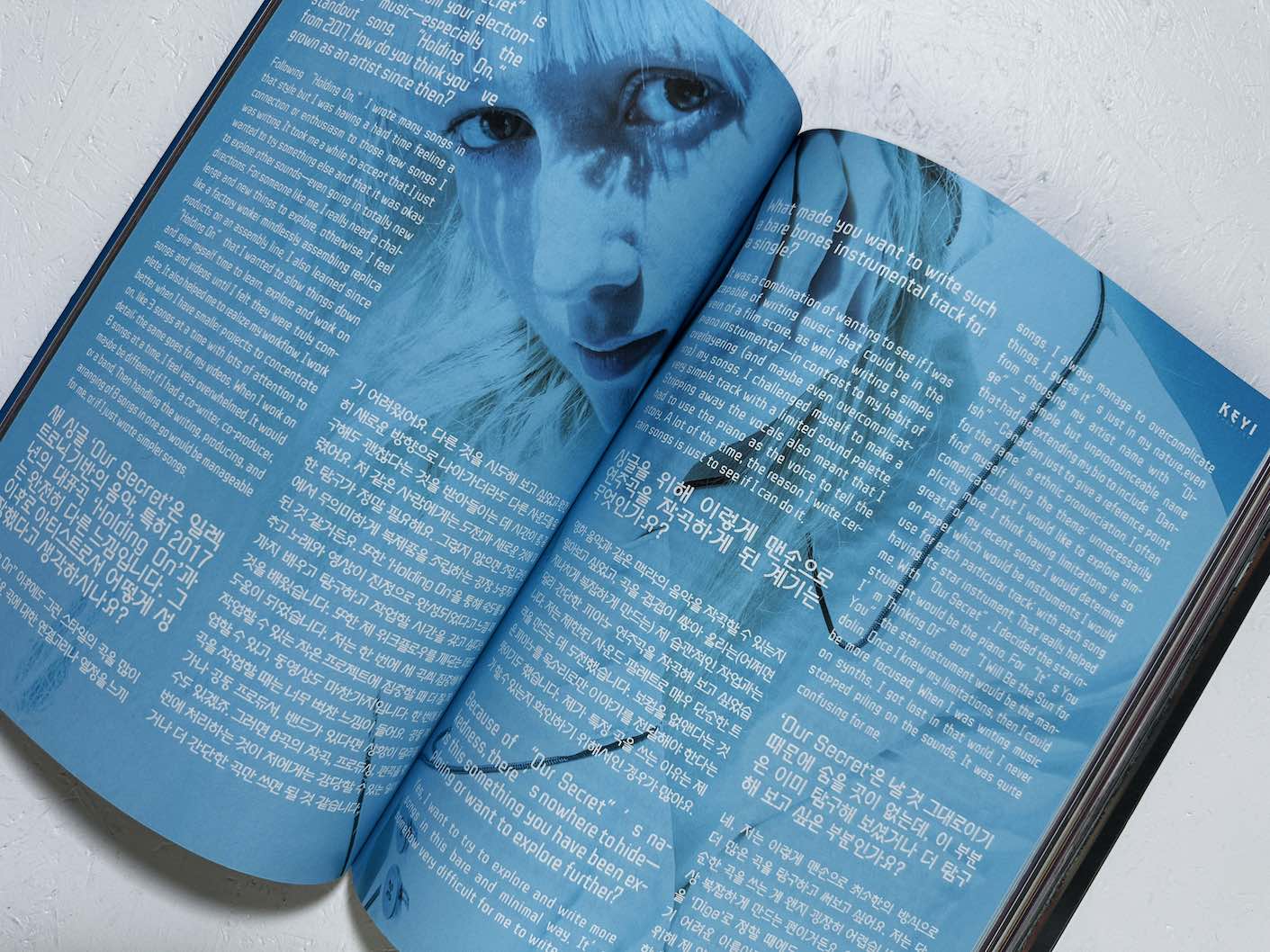
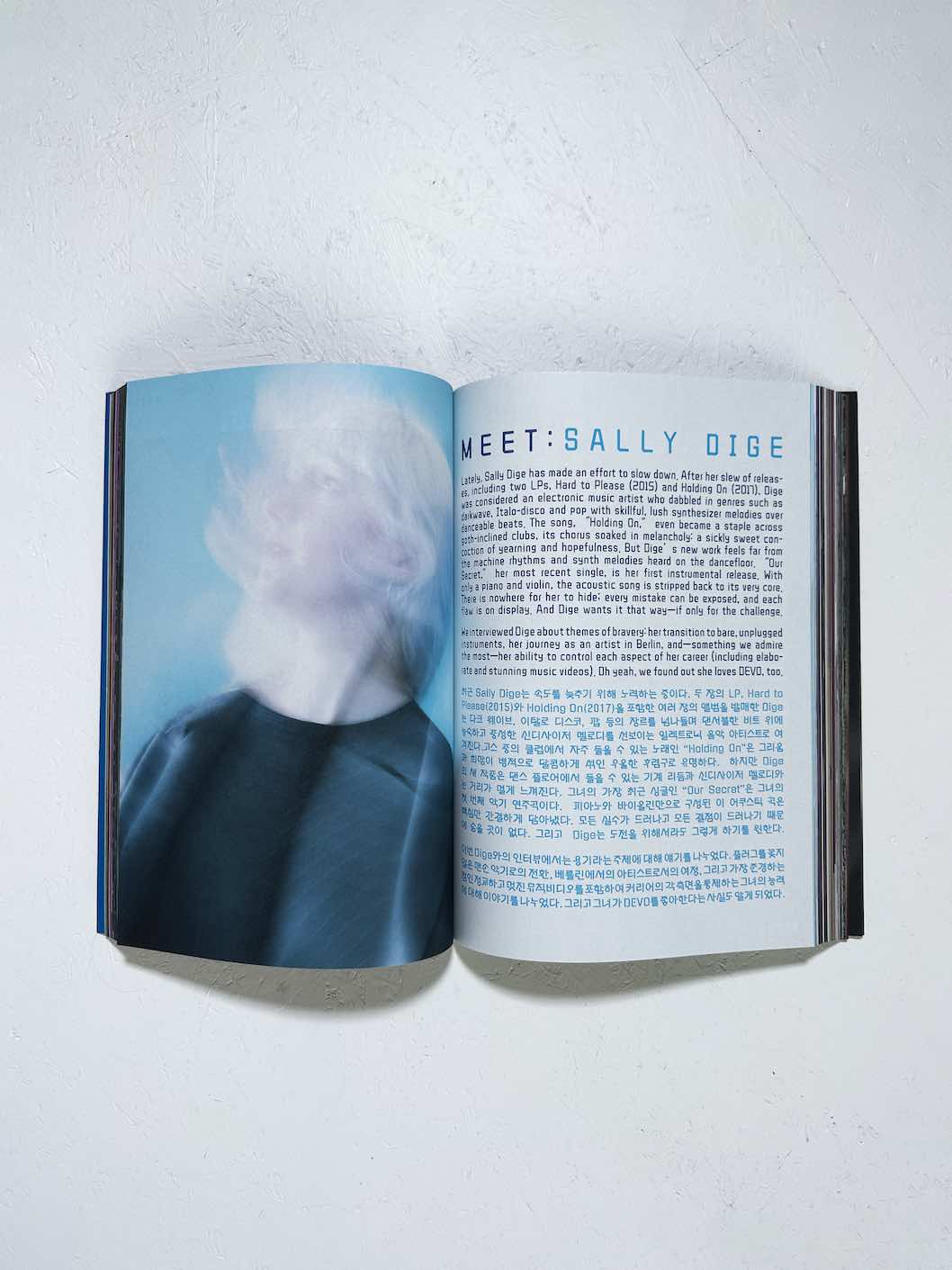
Lately, Sally Dige has made an effort to slow down. After her slew of releases, including two LPs, Hard to Please (2015) and Holding On (2017), Dige was considered an electronic music artist who dabbled in genres such as darkwave, Italo-disco and pop with skillful, lush synthesizer melodies over danceable beats. The song, “Holding On,” even became a staple across goth-inclined clubs, its chorus soaked in melancholy: a sickly sweet concoction of yearning and hopefulness. But Dige’s new work feels far from the machine rhythms and synth melodies heard on the dancefloor. “Our Secret,” her most recent single, is her first instrumental release. With only a piano and violin, the acoustic song is stripped back to its very core. There is nowhere for her to hide; every mistake can be exposed, and each flaw is on display. And Dige wants it that way—if only for the challenge.
We interviewed Dige about themes of bravery: her transition to bare, unplugged instruments, her journey as an artist in Berlin, and—something we admire the most—her ability to control each aspect of her career (including elaborate and stunning music videos). Oh yeah, we found out she loves DEVO, too.

Your new single, “Our Secret” is vastly different from your electronic-based music—especially the standout song, “Holding On,” from 2017. How do you think you’ve grown as an artist since then?
Following “Holding On,” I wrote many songs in that style but I was having a hard time feeling a connection or enthusiasm to those new songs I was writing. It took me a while to accept that I just wanted to try something else and that it was okay to explore other sounds—even going in totally new directions. For someone like me, I really need a challenge and new things to explore, otherwise, I feel like a factory worker mindlessly assembling replica products on an assembly line. I also learned since “Holding On” that I wanted to slow things down and give myself time to learn, explore and work on songs and videos until I felt they were truly complete. It also helped me to realize my workflow. I work better when I have smaller projects to concentrate on, like 3 songs at a time with lots of attention to detail; the same goes for my videos. When I work on 8 songs at a time, I feel very overwhelmed. It would maybe be different if I had a co-writer, co-producer, or a band. Then handling the writing, producing, and arranging of 8 songs in one go would be manageable for me, or if I just wrote simpler songs.
What made you want to write such a bare bones instrumental track for a single?
It was a combination of wanting to see if I was capable of writing music that could be in the vein of a film score, as well as writing a simple piano instrumental—in contrast to my habit of overlayering (and maybe even overcomplicating) my songs. I challenged myself to make a very simple track with a limited sound palette. Stripping away the vocals also meant that I had to use the piano as the voice to tell the story. A lot of the time, the reason I write certain songs is just to see if I can do it.
Because of “Our Secret”’s nakedness, there’s nowhere to hide—is this something you have been exploring or want to explore further?
Yes, I want to try to explore and write more songs in this bare and minimal way. It’s somehow very difficult for me to write simple songs. I always manage to overcomplicate things. I guess it’s just in my nature,even from choosing my artist name with “Dige”—a simple but unpronounceable name that had me extending my bio to include“Danish”- Canadian just to give a reference point for the name’s ethnic pronunciation. I often find myself living the theme: unnecessarily complicated.But I would like to explore simplicity more. I think having limitations is so great.For my recent songs I would determine on paper which would be instruments I would use for each particular track; with each song having its star instrument. That really helped me. With “Our Secret”, I decided the star instrument would be the piano. For “It’s You I’m Thinking Of” and “I Will Be the Sun for You” the star instrument would be the mandolin. Once I knew my limitations, then I could be more focused. When I was writing music on synths, I got lost in that world. I never stopped piling on the sounds. It was quite confusing for me.

It seems like, since Holding On, you’ve been emphasizing more acoustic instruments in your music. How do you think that’s changed the tone and reception of your music?
Working with acoustic instruments brings a warmer, organic tone compared to the colder, programmed electronic sound. It seems that the reception has been positive. I try not to look too deep into it though, because if I were to read negative feedback, then it could get into my head. I think it’s good to be a bit naive in this way; to protect oneself to be able to keep creating authentically. I feel creating art and music is like a diary entry, but instead of tucking your diary on a shelf, you are publishing it for the world to read.So if you started to listen to those who said that they didn’t like what you wrote in your diary, you would then approach your next diary entry with caution and hesitation, rather than just expressing yourself naturally, authentically and honestly.
Do you imagine a different audience for your newer work?
I suppose changing your style and genre of music will naturally open your music to a new audience, and potentially lose some of your older audience. Even though my style, instruments and sounds have gone in new directions, it’s still the same person and voice behind those songs. Of course, I always hope that new people (and old fans) will enjoy the music I am releasing, but at the end of the day, it’s important to create music that you, the artist, want to create rather than trying to chase or please an audience. Otherwise you can lose your way and the art and music will be compromised.
How does your Danish-Canadian background weave into your art?
I believe that everyone’s background naturally weaves itself into their art, even if one tries to reject it. We are like clay: molded and shaped by our experiences and our upbringing. I’m a dual citizen of Canada and Denmark and so both backgrounds have been influential in how I tell stories.Obviously growing up in Canada, I am Canadian, but it’s impossible for me to not have been influenced by the Danish culture that I was brought up in with my Danish family,like being raised in the Danish traditions, living on our old family farm in Denmark, going to school in Denmark as a kid, and so on. I guess it’s a typical story for kids of immigrants, or kids who are immigrants—you grow up with a blended culture that shapes your outwardly view through a dual lens. If I were to be really specific about the influences I’ve taken from the Danish side, a lot of my inspiration for stories comes from our family farm in Denmark, the Danish countryside, the silence around the dinner tables,the heaviness and melancholy that was present in that farm and with my family because of it. Most heavy things you never spoke about, but it hung heavy in the air above everyone like a canopy, and it made me want to explore more of those stories and mysteries that we locked away.
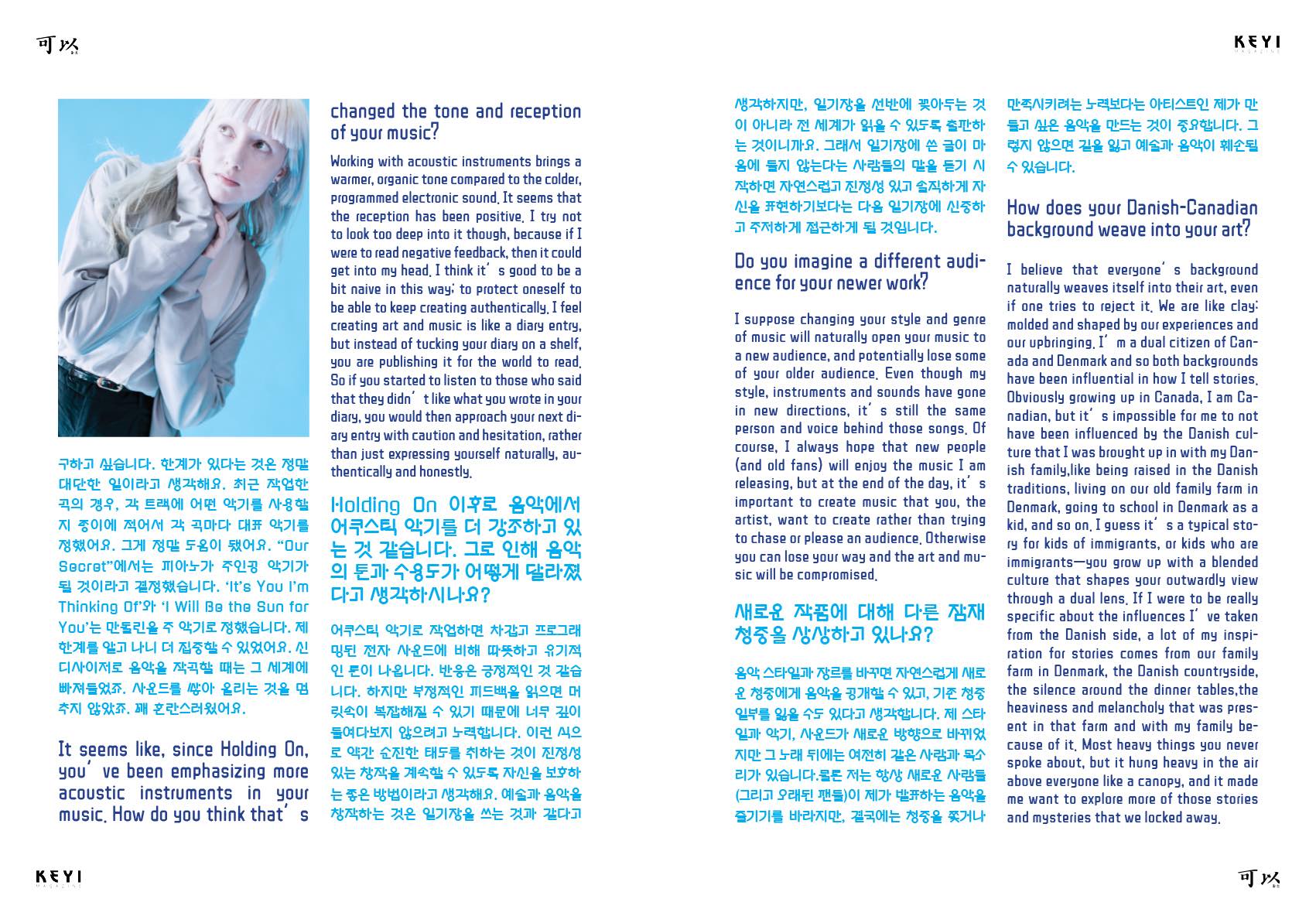
At what point did you have the moment where it all clicked and you decided you wanted to do this professionally?
When I was a kid most of my diary entries were about making music or writing film scripts. I was always drawn to making music, films or art and I could not imagine doing anything otherwise. I’m also just not good with normal day jobs. I always seem to be the most useless person at the job place and in the team. I really wondered if I could ever succeed in a normal job environment under a boss. I know some people who can enter workplaces and become stars there. I’m just not good with that world. I get so anxious and full of self-doubt. I feel like I can’t fit in, but at the same time unconsciously distance myself so that I will never fit in. I think the job I enjoyed the most was working as a janitor because I got to be alone. I also did a lot of deep thinking during that time and saw how so much of society reflected itself in those bathroom stalls. So to think about the moment that it all ‘clicked’ to pursue music professionally—I don’t think that anything necessarily clicked, rather I just never found a normal day job that I was able to succeed in. I had this conversation once with another artist about normal jobs and he was saying that he also does his music professionally because he was never good at any other normal day job, and I resonated with that because neither am I. Might as well stick to music and the arts then!

When you begin to write a song, what instrument do you gravitate towards?
It depends on the mood I am in. Sometimes I will begin by writing the beat, or pluck away on a guitar, or playing chords on the keyboard that I sing along to. I find though that if I write the music first, then I have a hard time later finding the vocals for the song, and if I write the vocals first then I have a hard time later writing the music for the song.
What are the primary themes that you keep coming back to?
Themes for my videos which I often come back to are dreams, the countryside, memories, family, fairy tales, and my own problems or fears reflected in symbolism or metaphors.
For songs, I often sing about family, relationships and about myself (through different perspectives).
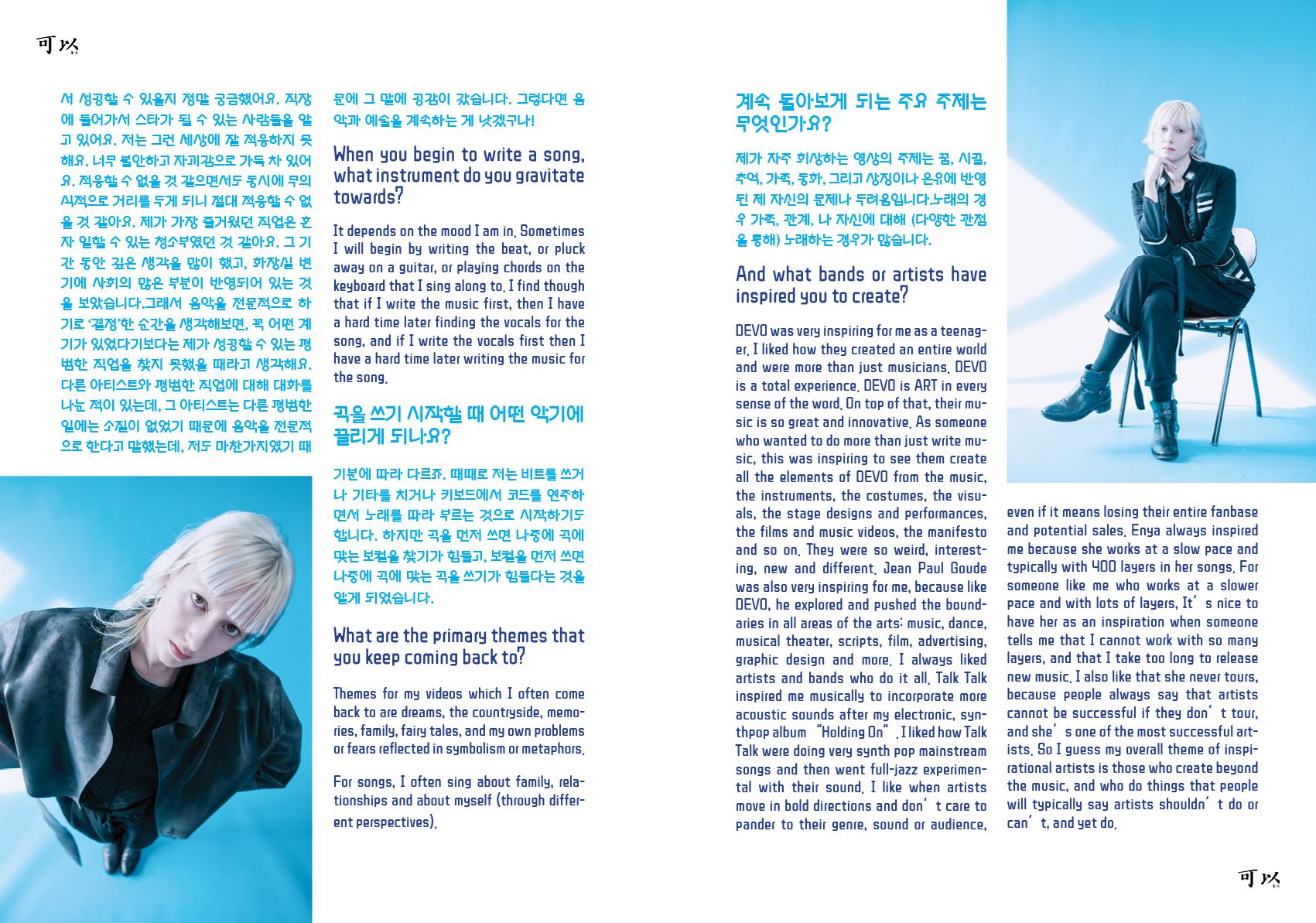
And what bands or artists have inspired you to create?
DEVO was very inspiring for me as a teenager. I liked how they created an entire world and were more than just musicians. DEVO is a total experience. DEVO is ART in every sense of the word. On top of that, their music is so great and innovative. As someone who wanted to do more than just write music, this was inspiring to see them create all the elements of DEVO from the music, the instruments, the costumes, the visuals, the stage designs and performances, the films and music videos, the manifesto and so on. They were so weird, interesting, new and different. Jean Paul Goude was also very inspiring for me, because like DEVO, he explored and pushed the boundaries in all areas of the arts: music, dance, musical theater, scripts, film, advertising, graphic design and more. I always liked artists and bands who do it all. Talk Talk inspired me musically to incorporate more acoustic sounds after my electronic, synthpop album “Holding On”. I liked how Talk Talk were doing very synth pop mainstream songs and then went full-jazz experimental with their sound. I like when artists move in bold directions and don’t care to pander to their genre, sound or audience, even if it means losing their entire fanbase and potential sales. Enya always inspired me because she works at a slow pace and typically with 400 layers in her songs. For someone like me who works at a slower pace and with lots of layers, It’s nice to have her as an inspiration when someone tells me that I cannot work with so many layers, and that I take too long to release new music. I also like that she never tours, because people always say that artists cannot be successful if they don’t tour, and she’s one of the most successful artists. So I guess my overall theme of inspirational artists is those who create beyond the music, and who do things that people will typically say artists shouldn’t do or can’t, and yet do.
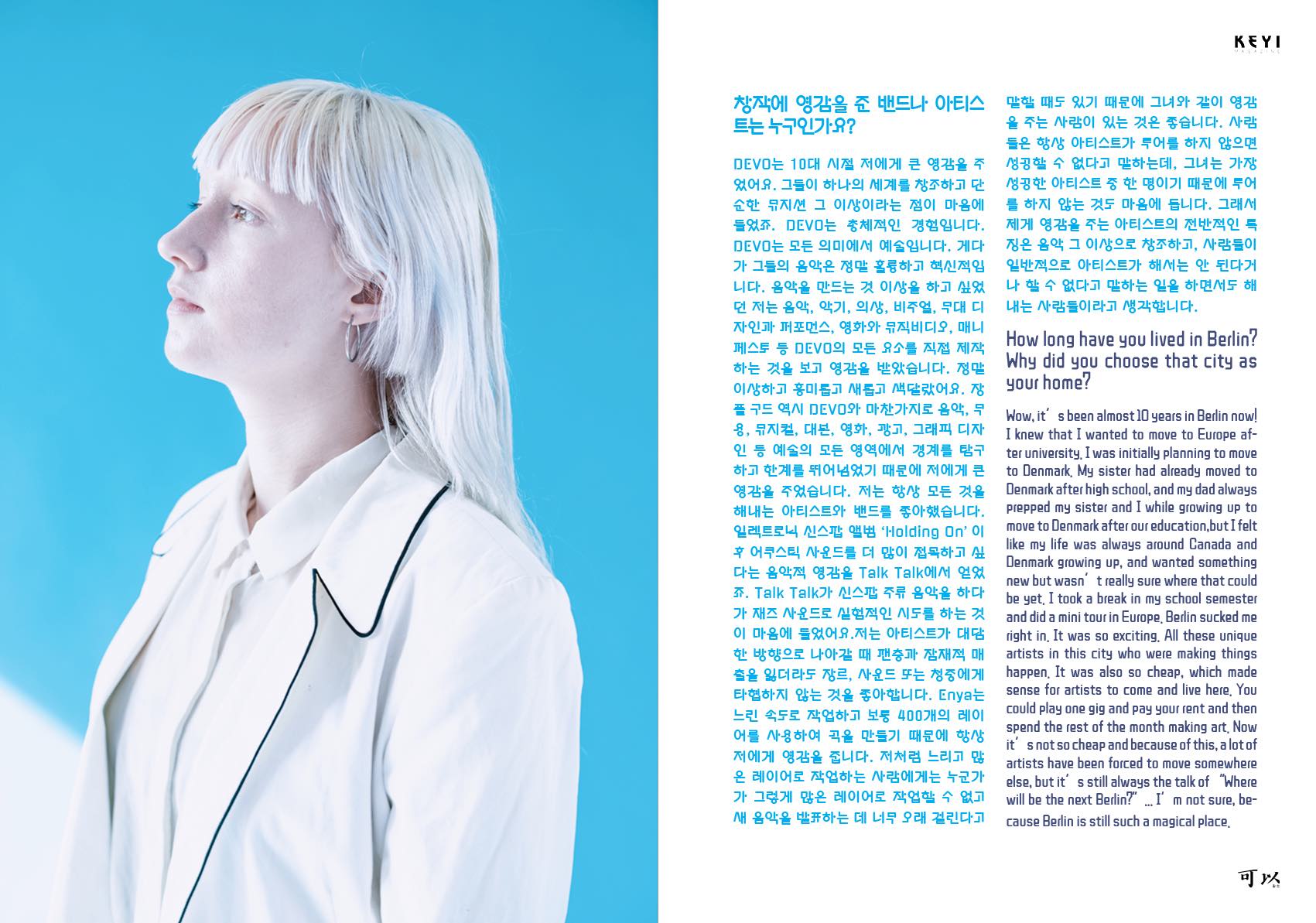
How long have you lived in Berlin? Why did you choose that city as your home?
Wow, it’s been almost 10 years in Berlin now! I knew that I wanted to move to Europe after university. I was initially planning to move to Denmark. My sister had already moved to Denmark after high school, and my dad always prepped my sister and I while growing up to move to Denmark after our education,but I felt like my life was always around Canada and Denmark growing up, and wanted something new but wasn’t really sure where that could be yet. I took a break in my school semester and did a mini tour in Europe. Berlin sucked me right in. It was so exciting. All these unique artists in this city who were making things happen. It was also so cheap, which made sense for artists to come and live here. You could play one gig and pay your rent and then spend the rest of the month making art. Now it’s not so cheap and because of this, a lot of artists have been forced to move somewhere else, but it’s still always the talk of “Where will be the next Berlin?”… I’m not sure, because Berlin is still such a magical place.
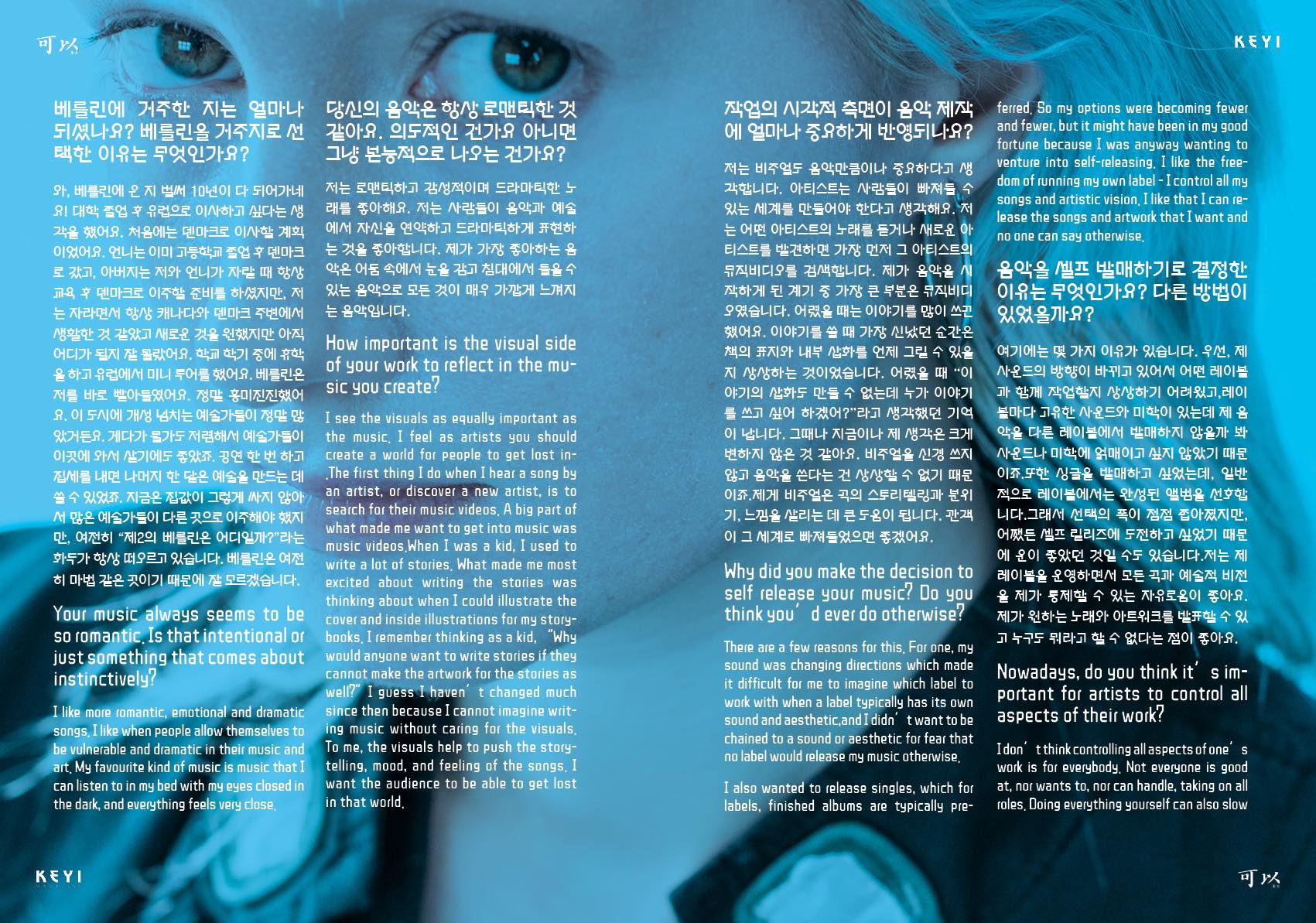
Your music always seems to be so romantic. Is that intentional or just something that comes about instinctively?
I like more romantic, emotional and dramatic songs. I like when people allow themselves to be vulnerable and dramatic in their music and art. My favourite kind of music is music that I can listen to in my bed with my eyes closed in the dark, and everything feels very close.
How important is the visual side of your work to reflect in the music you create?
I see the visuals as equally important as the music. I feel as artists you should create a world for people to get lost in.The first thing I do when I hear a song by an artist, or discover a new artist, is to search for their music videos. A big part of what made me want to get into music was music videos.When I was a kid, I used to write a lot of stories. What made me most excited about writing the stories was thinking about when I could illustrate the cover and inside illustrations for my storybooks. I remember thinking as a kid, “Why would anyone want to write stories if they cannot make the artwork for the stories as well?”I guess I haven’t changed much since then because I cannot imagine writing music without caring for the visuals. To me, the visuals help to push the storytelling, mood, and feeling of the songs. I want the audience to be able to get lost in that world.
Why did you make the decision to self release your music? Do you think you’d ever do otherwise?
There are a few reasons for this. For one, my sound was changing directions which made it difficult for me to imagine which label to work with when a label typically has its own sound and aesthetic,and I didn’t want to be chained to a sound or aesthetic for fear that no label would release my music otherwise.
I also wanted to release singles, which for labels, finished albums are typically preferred. So my options were becoming fewer and fewer, but it might have been in my good fortune because I was anyway wanting to venture into self-releasing. I like the freedom of running my own label – I control all my songs and artistic vision. I like that I can release the songs and artwork that I want and no one can say otherwise.
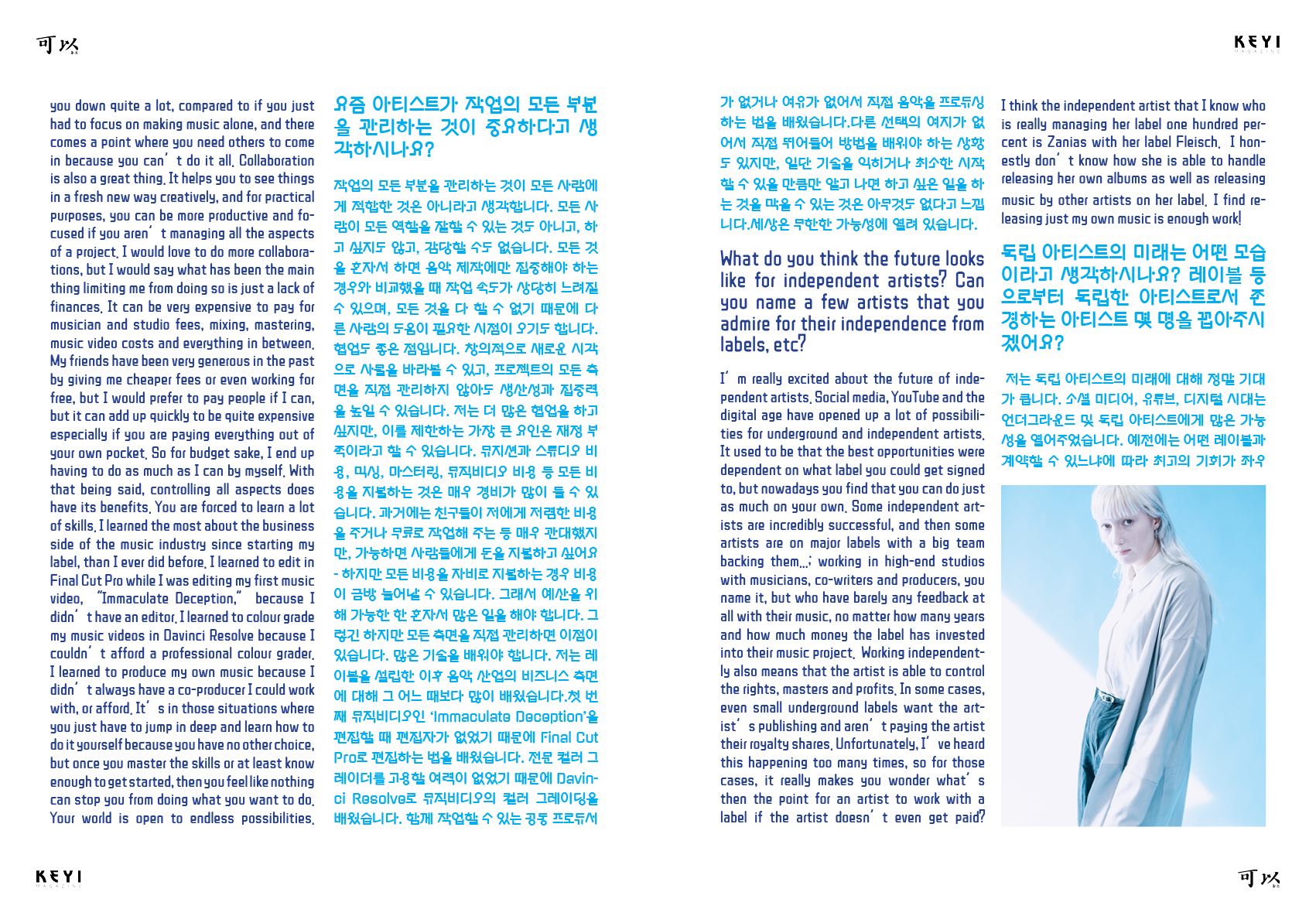
Nowadays, do you think it’s important for artists to control all aspects of their work?
I don’t think controlling all aspects of one’s work is for everybody. Not everyone is good at, nor wants to, nor can handle, taking on all roles. Doing everything yourself can also slow you down quite a lot, compared to if you just had to focus on making music alone, and there comes a point where you need others to come in because you can’t do it all. Collaboration is also a great thing. It helps you to see things in a fresh new way creatively, and for practical purposes, you can be more productive and focused if you aren’t managing all the aspects of a project. I would love to do more collaborations, but I would say what has been the main thing limiting me from doing so is just a lack of finances. It can be very expensive to pay for musician and studio fees, mixing, mastering, music video costs and everything in between.My friends have been very generous in the past by giving me cheaper fees or even working for free, but I would prefer to pay people if I can, but it can add up quickly to be quite expensive especially if you are paying everything out of your own pocket. So for budget sake, I end up having to do as much as I can by myself. With that being said, controlling all aspects does have its benefits. You are forced to learn a lot of skills. I learned the most about the business side of the music industry since starting my label, than I ever did before. I learned to edit in Final Cut Pro while I was editing my first music video, “Immaculate Deception,” because I didn’t have an editor. I learned to colour grade my music videos in Davinci Resolve because I couldn’t afford a professional colour grader. I learned to produce my own music because I didn’t always have a co-producer I could work with, or afford. It’s in those situations where you just have to jump in deep and learn how to do it yourself because you have no other choice, but once you master the skills or at least know enough to get started, then you feel like nothing can stop you from doing what you want to do.
Your world is open to endless possibilities.
What do you think the future looks like for independent artists? Can you name a few artists that you admire for their independence from labels, etc?
I’m really excited about the future of independent artists. Social media, YouTube and the digital age have opened up a lot of possibilities for underground and independent artists. It used to be that the best opportunities were dependent on what label you could get signed to, but nowadays you find that you can do just as much on your own. Some independent artists are incredibly successful, and then some artists are on major labels with a big team backing them…; working in high-end studios with musicians, co-writers and producers, you name it, but who have barely any feedback at all with their music, no matter how many years and how much money the label has invested into their music project. Working independently also means that the artist is able to control the rights, masters and profits. In some cases, even small underground labels want the artist’s publishing and aren’t paying the artist their royalty shares. Unfortunately, I’ve heard this happening too many times, so for those cases, it really makes you wonder what’s then the point for an artist to work with a label if the artist doesn’t even get paid?
I think the independent artist that I know who is really managing her label one hundred percent is Zanias with her label Fleisch. I honestly don’t know how she is able to handle releasing her own albums as well as releasing music by other artists on her label. I find releasing just my own music is enough work!
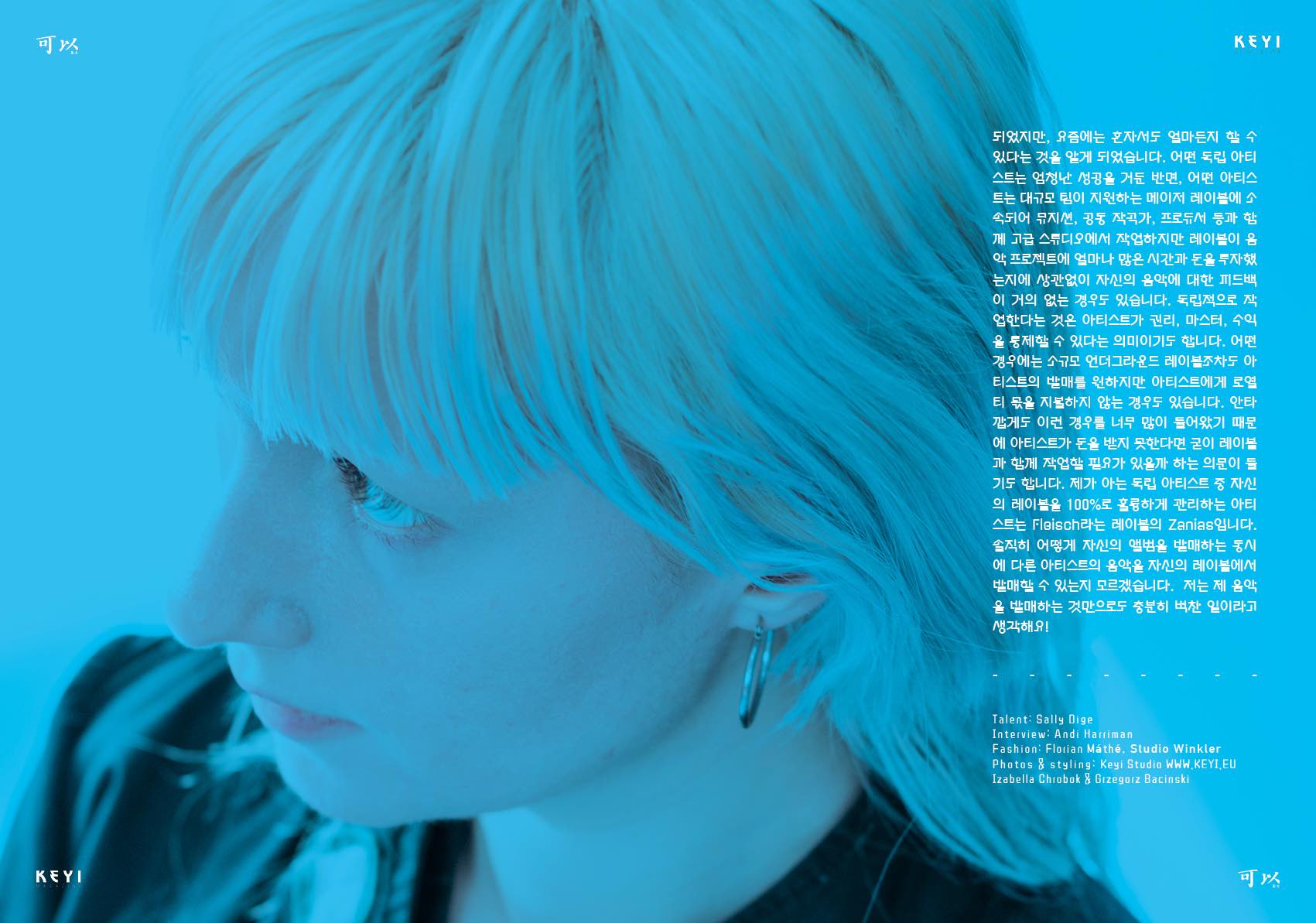
Talent: Sally Dige @sally_dige
Words: Andi Harriman @andi80s
Pictures & Styling: @keyistudio – www.keyi.eu
Designers: Florian Mathé https://www.florianmathe.com
Studio Winkler http://www.studiowinkler.com @studiowinkler
more music stories -> click here

